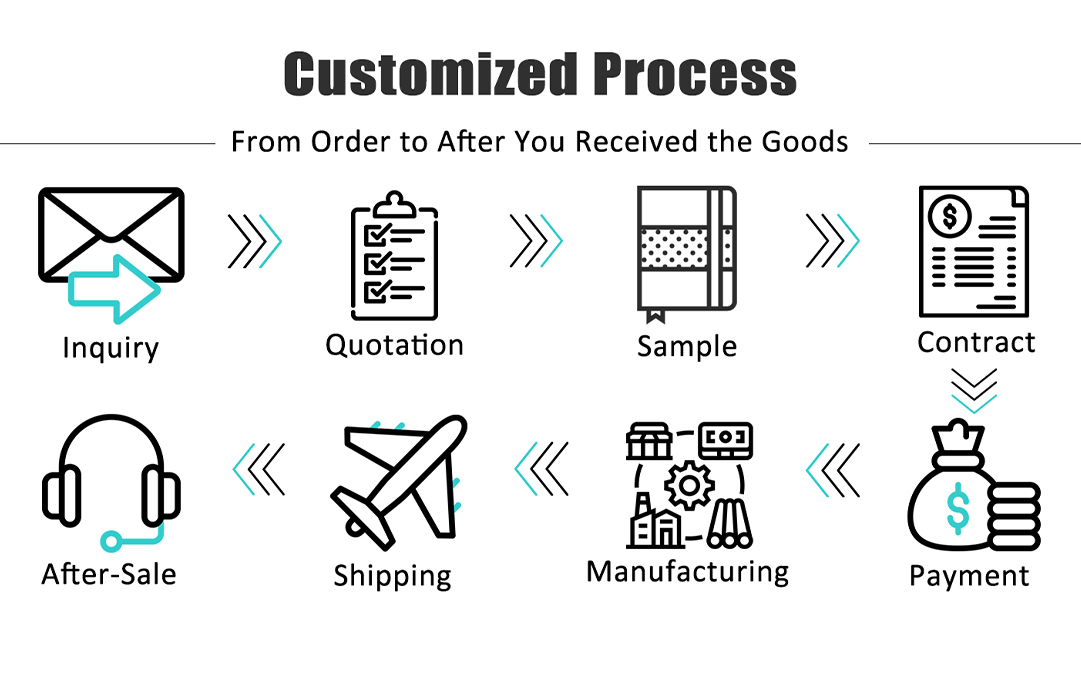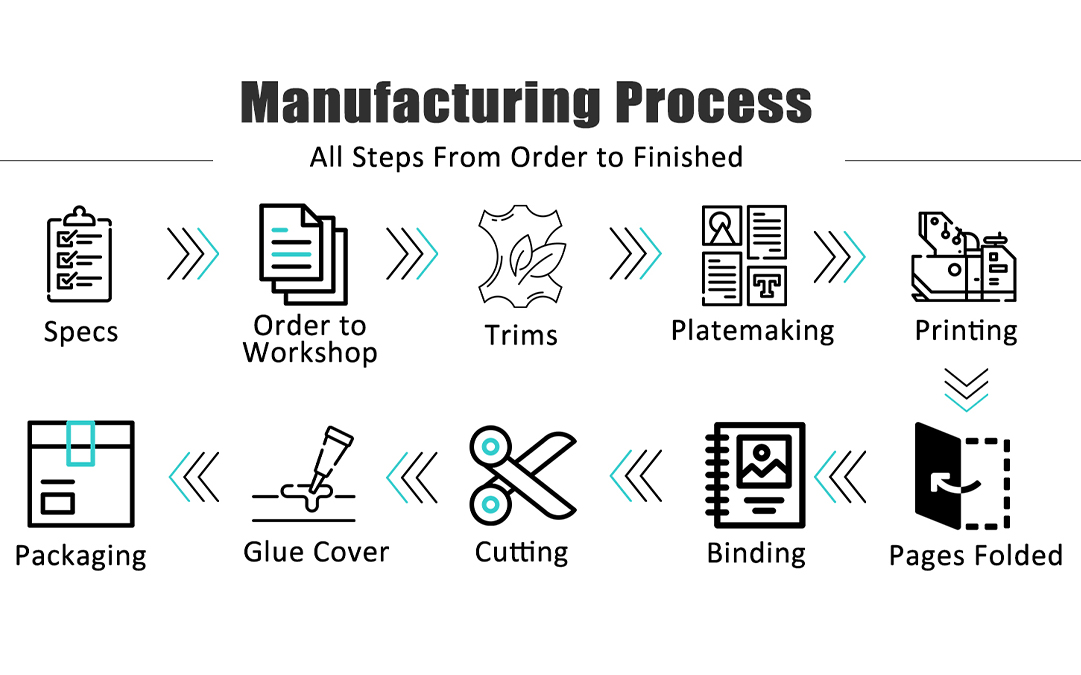What are the Environmental and Ethical Considerations in Custom Journal Printing?
Introduction
In today’s world, where sustainability and ethics play a crucial role in business practices, the custom journal printing industry is no exception. As a provider of custom notebook printing services, it is essential to understand the environmental and ethical considerations that can impact your business and your customers’ perception. This article delves into these considerations, offering actionable insights to ensure your custom journal printing aligns with responsible practices.
Material Sourcing and Sustainability
Sustainable Paper Options
When it comes to custom journal printing, the type of paper used can significantly impact the environment. Opt for sustainable paper options like recycled paper, FSC-certified paper, or tree-free alternatives. These choices not only reduce deforestation but also appeal to eco-conscious customers.
Eco-Friendly Inks
Traditional inks can contain harmful chemicals that contribute to environmental pollution. Switching to eco-friendly inks, such as vegetable-based or soy-based inks, can minimize your carbon footprint and ensure safer disposal.
Ethical Suppliers
Working with ethical suppliers who prioritize sustainable practices is crucial. Ensure your suppliers follow ethical labor practices, provide fair wages, and maintain safe working conditions. This builds trust with your customers and supports ethical business operations.
Manufacturing Processes
Energy-Efficient Production
Implementing energy-efficient production methods can significantly reduce the environmental impact of custom journal printing. Invest in energy-efficient machinery and adopt practices like using renewable energy sources to power your operations.
Waste Management
Effective waste management is essential in the printing industry. Establish a robust recycling program for paper scraps, ink cartridges, and other waste materials. This not only reduces landfill waste but also promotes a circular economy.
Water Conservation
Printing processes can consume large amounts of water. Implementing water conservation measures, such as using waterless printing technologies, can help reduce water usage and minimize the environmental impact.
Customization and Design Considerations
Minimalist Designs
Encouraging customers to opt for minimalist designs can reduce the use of inks and materials. Simple, elegant designs can be just as impactful while being more environmentally friendly.
Eco-Friendly Binding Options
Consider offering eco-friendly binding options such as smyth sewing or ring binding with recycled materials. These options not only enhance the durability of custom journals but also align with sustainable practices.
Digital Proofing
Utilizing digital proofing methods instead of physical proofs can significantly reduce paper waste. Digital proofs allow for quick and easy revisions, making the design process more efficient and environmentally friendly.
Ethical Considerations
Fair Labor Practices
Ensuring fair labor practices within your company and among your suppliers is a fundamental ethical consideration. This includes fair wages, safe working conditions, and respecting workers’ rights.
Community Engagement
Engaging with the local community and supporting social initiatives can enhance your company’s ethical standing. Consider contributing to local environmental projects or educational programs related to sustainability.
Transparent Communication
Being transparent with your customers about your environmental and ethical practices builds trust and loyalty. Clearly communicate the steps you take to ensure responsible custom journal printing.
Conclusion
In conclusion, incorporating environmental and ethical considerations into custom journal printing not only benefits the planet but also enhances your brand’s reputation. By focusing on sustainable materials, energy-efficient production, ethical practices, and transparent communication, you can create high-quality, responsible custom journals that resonate with today’s conscientious consumers. Embrace these practices to lead the way in sustainable and ethical custom journal printing.
Related Questions and Answers
Q: What types of sustainable paper options are available for custom journal printing?
A: Sustainable paper options include recycled paper, FSC-certified paper, and tree-free alternatives.
Q: How can I ensure my custom journal printing process is energy-efficient?
A: Invest in energy-efficient machinery and consider using renewable energy sources to power your operations.
Q: What are eco-friendly inks, and why are they important?
A: Eco-friendly inks, such as vegetable-based or soy-based inks, contain fewer harmful chemicals and reduce environmental pollution.
Table: Key Environmental and Ethical Practices
| Aspect | Actionable Steps |
|---|---|
| Sustainable Paper | Use recycled or FSC-certified paper |
| Eco-Friendly Inks | Switch to vegetable-based or soy-based inks |
| Ethical Suppliers | Partner with suppliers who follow fair labor practices |
| Energy Efficiency | Implement energy-efficient production methods |
| Waste Management | Establish a robust recycling program |
| Water Conservation | Adopt waterless printing technologies |
| Minimalist Designs | Encourage simple and elegant designs |
| Eco-Friendly Binding | Offer sustainable binding options |
| Digital Proofing | Use digital proofing to reduce paper waste |
| Community Engagement | Support local environmental and educational projects |
Buying Guide
When choosing a custom notebook printing service, consider the following environmental and ethical factors:
- Sustainable Materials: Ensure the provider uses recycled or FSC-certified paper and eco-friendly inks.
- Production Methods: Look for energy-efficient production and water conservation practices.
- Ethical Practices: Check if the company maintains fair labor practices and supports community initiatives.
- Customization Options: Opt for minimalist designs and eco-friendly binding options.
Contact Us: Ms. Rimo Lau WhatsApp Me
Whatsapp: 0086 18336352791 – WeChat&Phone
Website: www.fullcolorprintstationery.com
E-Mail: [email protected]





